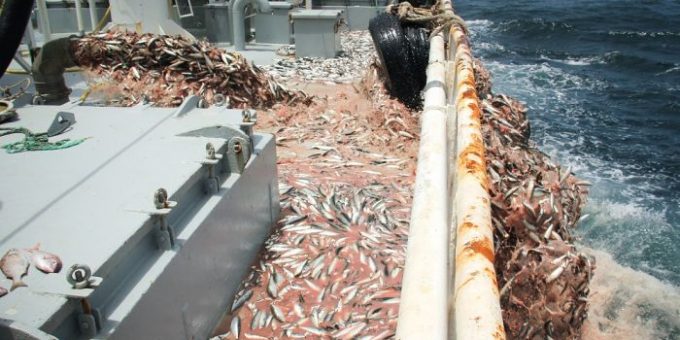The West African sub-region annually loses $26 billion to illegal fishing and illicit trade in marine resources, a senior Ghanian official has warned, echoing a recent report by an independent intergovernmental body that globally, nature is declining at rates unprecedented in human history, and species’ extinction is accelerating at an alarming rate.
In an address to selected media personnel at a workshop held in Accra that focused on the nature crimes in Ghana, the West African country’s Minister for Lands and Natural Resources, Samuel A. Jinapor, said that “on the economic front, Interpol estimates that 38% of global criminal proceeds are derived from nature crimes.” He also noted that crimes, such as illegal fishing, illegal mining and logging, and poaching, had damaged some vital and vulnerable ecosystems in the world, such as forests, wildlife, oceans, wetlands, coral reefs, and mangroves. His words echoed the recent report released by the Intergovernmental Science-Policy Platform on Biodiversity and Ecosystem Services (IPBES) that estimated that around one million animal and plant species were now threatened with extinction within the next decades.
Jinapor also cited a report jointly produced by the World Wildlife Fund (WFF) and the United Nations Office on Drugs and Crime (UNDOC), that nature crimes accounted for about 26% of global emissions and remained a major obstacle to attaining the 1.5 degrees Celsius target. Kyei Kwadwo Yamoah, an expert from the Fisheries Sector, said that Illegal Unreported and Unregulated (IUU) fishing had been identified globally as a major threat to the sustainability of the fisheries resource, whereby he warned that ”African countries of the Gulf of Guinea with little or no capacity to monitor their fisheries are the main victims of the practice.” He also noted that most of IUU fishing practices had gained strong roots among the fishers mainly because of a weak enforcement of the fisheries laws and regulations.



